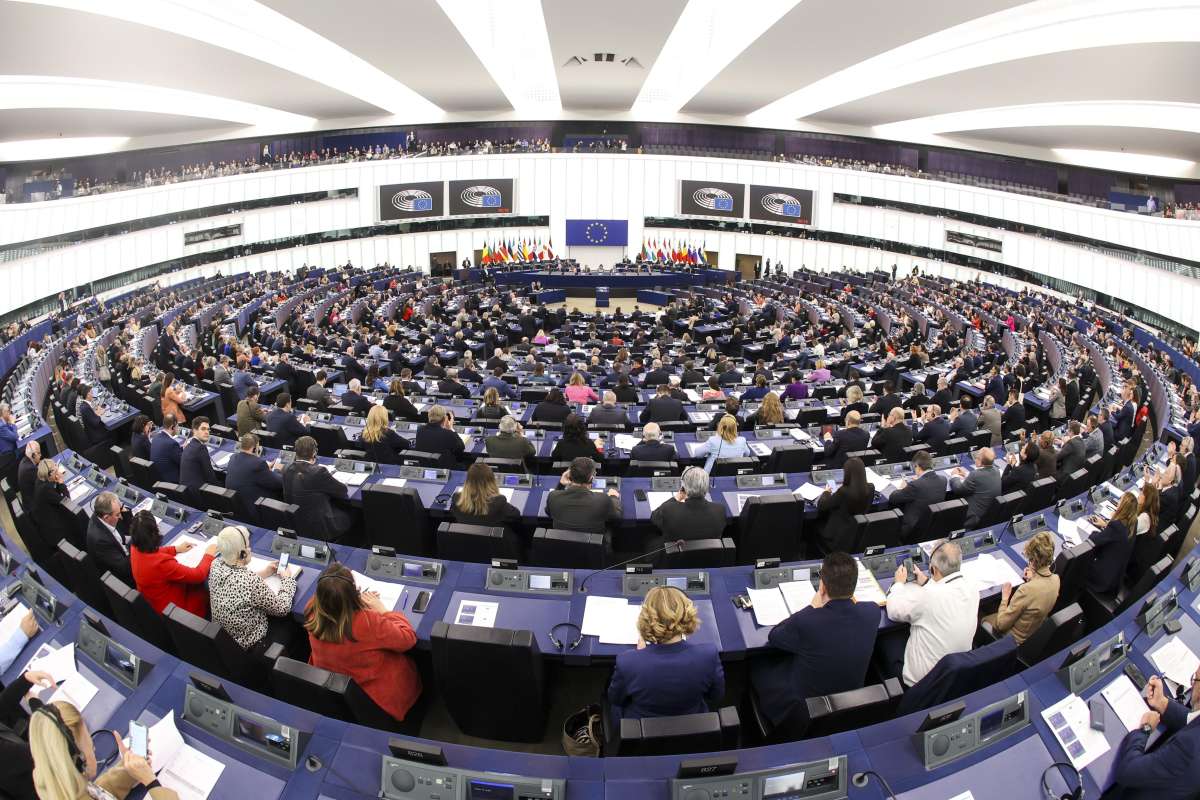The Dutch voting, occurring six months post Geert Wilders’ far-right Party for Freedom’s notable gains in the national parliament, sent ripples across Europe….reports Asian Lite News
The Netherlands has initiated four days of European Union elections across 27 nations, setting the stage for a crucial democratic exercise expected to highlight the rise of hard-right parties, The Washington Post reported.
Polls have opened in the Netherlands, marking the beginning of four days of voting in European Union parliamentary elections across the 27 member states.
Estonia has already commenced its voting period, which spans six days starting from Monday. However, the Netherlands stands out as the only EU country to begin its single-day vote so early.
Ireland will follow suit on Friday, with the rest of the EU nations participating over the weekend. The results of the elections will be announced on Sunday night, culminating in a Europe-wide revelation after all member states have completed voting, as reported by The Washington Post.
The Dutch voting process comes six months after Geert Wilders’ far-right Party for Freedom made significant strides in the Dutch national parliament, sending shockwaves across Europe. Current polling suggests that Wilders will continue to capitalise on this momentum, potentially setting a trend for the broader European political landscape.
In the aftermath of the previous EU elections five years ago, populist, far-right, and extremist parties have gained prominence in several EU nations. They now either lead governments in three EU countries or are part of governing coalitions in others, indicating a surge in public support across the continent.
The EU elections represent the world’s second-largest democratic exercise, trailing only behind India’s elections in terms of scale. With almost 400 million voters across the EU, the electorate will select 720 members of the European Parliament, spanning from the Arctic circle to the borders of Africa and Asia. The outcome of these elections will shape policies on global issues ranging from climate change and defence to migration and international relations with major players like China and the United States.
Since the last European elections in 2019, geopolitical dynamics have shifted significantly. The invasion of Ukraine by Russia has brought conflict to the fringe of the EU, underscoring the importance of the union’s role in maintaining peace and stability in the region. Ukraine, aspiring to join the EU, further underscores the geopolitical complexities at play.
Despite being a founding member, the Netherlands has witnessed growing dissatisfaction with EU policies among its populace. Research from the Clingendael think tank indicates that while the majority of Dutch citizens believe in remaining within the bloc, there is also a prevalent sentiment for greater self-sufficiency.
As voters across the EU are anticipated to shift towards the right, the Christian Democrat-dominated European People’s Party, led by European Commission President Ursula von der Leyen, remains the largest bloc in the EU legislature. It is poised to play a pivotal role in forming coalitions once the election results are tallied, according to The Washington Post.
In the Netherlands, Wilders’ PVV stands to potentially expand its domestic success into the European arena, possibly surpassing the combined strength of the Labour Party and Green Left. In the 2019 Dutch EU Parliament election, Labour secured 19 per cent of the vote, earning six seats, while the Greens claimed 11 per cent and three seats.
In contrast, Wilders’ party only managed to secure 3.5 per cent of the vote with no seats. However, with the backing of the Farmer Citizen Movement, Wilders has garnered support, particularly from farmers protesting against what they perceive as stifling EU regulations.
While Wilders has previously advocated for a Dutch exit from the EU, his party’s manifesto for the current election cycle does not explicitly mention a “Nexit.” Instead, it calls for reform from within the EU, aligning with the approach of other hard-right parties across the bloc.
The allocation of MEPs across member states varies based on population size, ranging from six seats for smaller nations like Malta, Luxembourg, and Cyprus to 96 seats for Germany. Following the departure of the United Kingdom from the EU in 2020, the number of MEPs decreased from 751 to 705, with some seats reallocated to other member states.
MEPs play a crucial role in shaping EU legislation, covering a wide array of areas such as climate, banking, agriculture, fisheries, security, and justice. Additionally, they hold sway over the EU budget, which is integral to implementing European policies, including aid provisions to countries like Ukraine.
Following the election, MEPs will convene to elect their president during the first plenary session scheduled from July 16-19. Subsequently, likely in September, they will nominate the president of the European Commission, based on a proposal put forth by member states. In the 2019 elections, Ursula von der Leyen secured a narrow victory to become the first woman to lead the European Commission, The Washington Post reported. (ANI)
ALSO READ: Georgia appeals court pauses Trump’s election meddling case
ALSO READ: Pro-Palestinian demonstrators arrested at Stanford University

